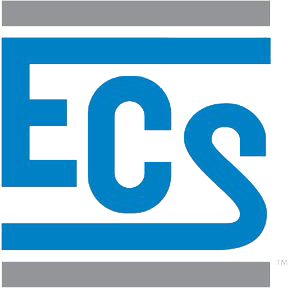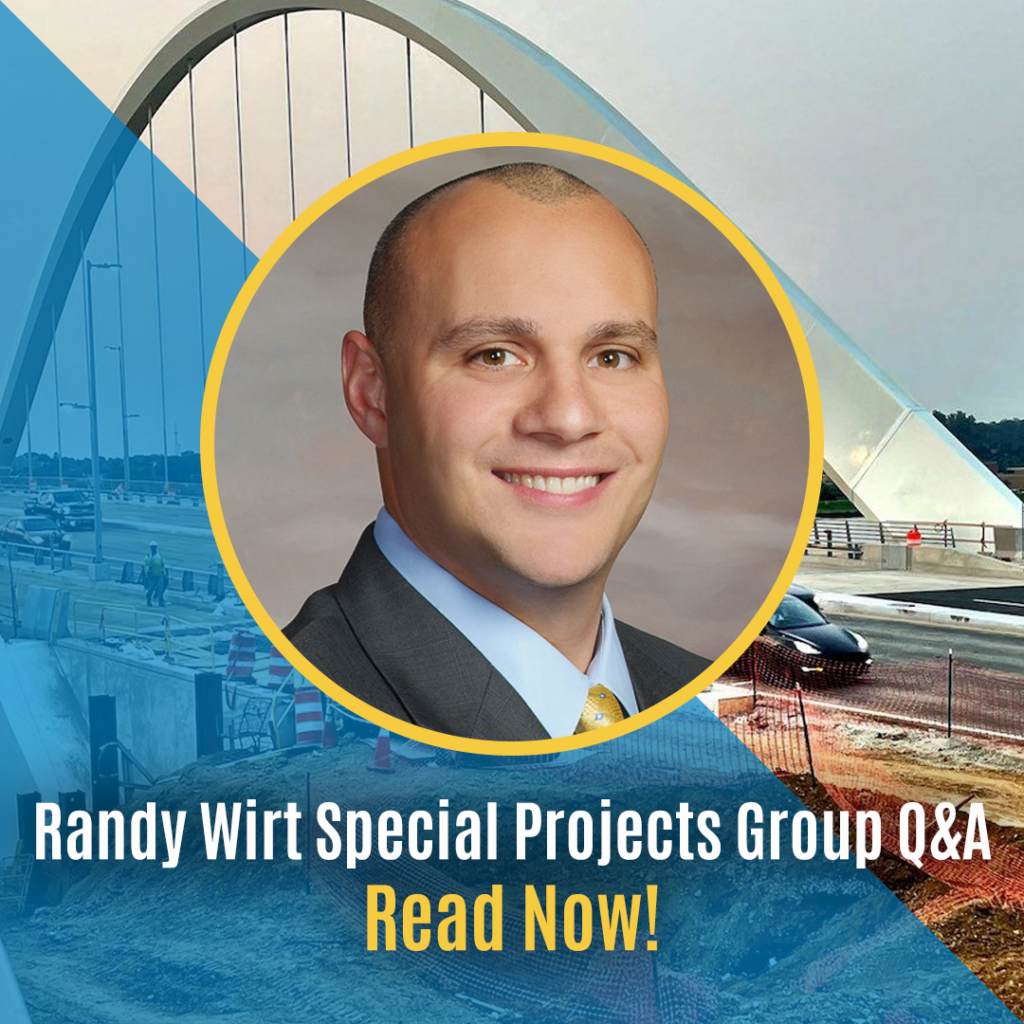At ECS, we are constantly trying to evolve, move toward the future and expand capabilities in our industry. We sat with the Director of Special Projects Group (SPG), Randy Wirt, PE, DBIA, to learn more about him, SPG and how they serve our clients.
Q: What is your current role with ECS? Please tell us about your professional journey with the company.
A: I have been working for ECS for about 12 years. In my first 11 years, I oversaw the Mid-Atlantic SPG. During that time, I was responsible for growing and evolving the group for future success. With increased success, profitability and a growing SPG clientele, other subsidiaries started forming SPG teams. Because of this growth and SPG development experience, I moved into a corporate director role supporting SPG at the national level. In this role, my job is to grow and foster SPG’s footprint throughout ECS with our growing clientele.
Q: What does the Special Projects Group do?
A: SPG identifies, pursues and executes large and complex engineering projects in the heavy civil, industrial, federal and power/energy markets. We also support ECS’ local offices on projects that require engineering support beyond the local office’s capabilities. Lastly, SPG provides growth opportunities by pursuing and executing regional or statewide contracts that cover multiple ECS-office footprints.
Q: How long has the group been serving clients and what makes this group “special?”
A: SPG has been operating for more than 12 years. This group is identified as “special” because we pursue and execute projects that our established local ECS offices may not have the bandwidth for or could not propose or execute further without our assistance due to the existing dedicated workload. This leads to a win-win relationship as we can maintain our focus on existing clients while developing new client relationships.
Q: What types of projects qualify under the SPG?
A: Typically, any large, heavy civil, industrial, federal or power/energy project opportunities. We also look and perform work for projects with the Federal Highway Administration (FHWA), United States Army Corps of Engineering (USACE), Departments of Transportation (DOT) and Indefinite Delivery Indefinite Quantity (IDIQ) contracts. Lastly, we also identify design-build (DB), progressive design-build (PDB) and public-private partnerships (P3) opportunities.
Q: One project SPG worked on was the South Capitol Street/Frederick Douglas Bridge. What challenges did that project face and how did the team overcome them?
A: Our team faced several geotechnical-engineering challenges associated with a signature project constructed in an urban environment with a fast-track design-build delivery system. The primary challenge was to design ground-improvement solutions allowing roadway embankments and bridge-abutment fills to be constructed within settlement magnitude and time-rate requirements to meet the project’s critical path. This challenge was solved with staged embankment construction, lightweight-fill alternatives and friction-reducing solutions for driven piles to minimize down-drag loads due to filling settlement. Another challenge was the construction of the eastern abutment foundations, located immediately adjacent to an aged, 108-inch-diameter utility line owned by DC Water who was very concerned about the stability of the aged line during pile driving. The solution was a test pile-vibration study conducted within the project footprint resulting in published-instrumentation and vibration-reporting requirements. This approach allowed for variable pile-driving energy to be applied during pile installation.
Q: What certifications, licenses or training is required to perform the work associated with the SPG?
A: For the most part, SPG engineers hold a master’s or doctorate in engineering. Additionally, our principal engineers are licensed professionals in multiple jurisdictions and typically maintain involvement in numerous professional organizations.
Q: What subsidiaries and regions does the Special Projects Group typically serve?
A: We are currently growing SPG organically in every ECS subsidiary. This allows the SPG teams to support each subsidiary’s local offices and balances workload across the entire company footprint to best serve our clients’ needs.
Q: One of ECS’ fundamental values is safety. In what ways does SPG uphold this value?
A: SPG focuses on safety because of the type of work we do. Our personnel attend local-office safety meetings and regularly participate in project-specific safety “toolbox” sessions and workshops. We also host regular safety sessions with our specialty subcontractors before and during project execution. Additionally, we do a significant amount of work on interstates and in urban environments. Because of this, we conduct training on working inside maintenance of traffic (MOT) zones to keep our people and the traveling public safe in and around our projects.
Fun Facts About Randy
Q: What do you like to do when you are not working?
A: When not at work, I love to exercise, golf and spend time with my family.
Q: What is a fun fact about you that many people may not know?
A: Not many people know this, but I am a twin. I am not only a twin, but I am also married to a twin.
Additional Resources:
For more information, contact us

